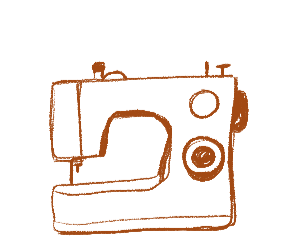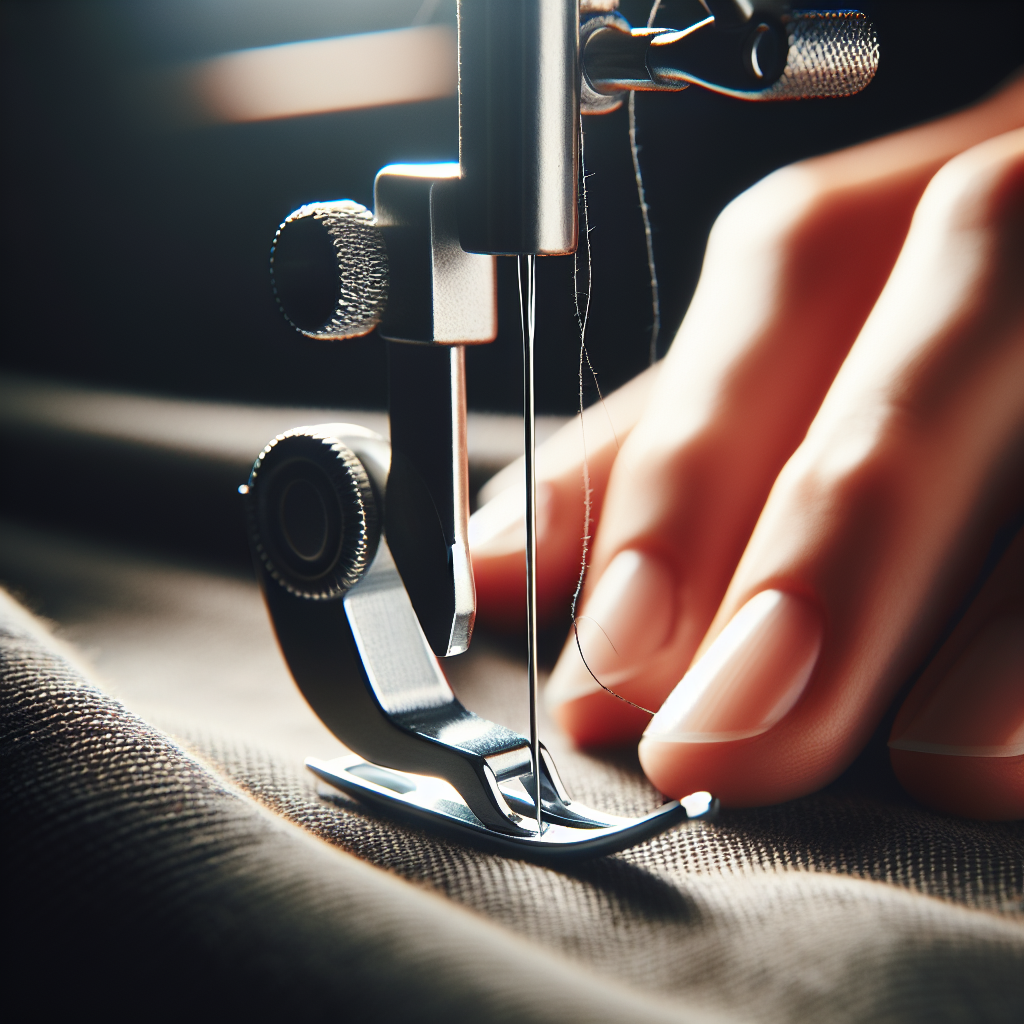Have you ever wondered what the official job title is for someone who sews? Whether it’s a hobby or a profession, sewing is a skill that requires precision, creativity, and attention to detail. From designing and altering garments to creating custom-made pieces, these individuals play a crucial role in the fashion and textile industry. So, what exactly do we call them? Let’s uncover the answer to this intriguing question and explore the world of those who bring fabrics to life through their stitching expertise.
Job Titles in the Sewing Industry
When it comes to the sewing industry, there are several job titles that are commonly used to describe someone who sews. Whether you are interested in pursuing a career in sewing or simply want to learn more about the different roles within the industry, understanding these job titles can provide valuable insight. In this article, we will explore the various job titles in the sewing industry, including the roles of tailor, seamstress, sewer, dressmaker, and garment worker.
Tailor
One of the most well-known job titles in the sewing industry is tailor. A tailor is someone who specializes in customizing and altering garments to fit individual customers. They are skilled in taking measurements, making adjustments, and creating bespoke clothing that fits a person’s unique body shape and size. Tailors often work in specialized shops or on a freelance basis, providing their services to clients who seek personalized and tailored clothing.
Seamstress
Similar to a tailor, a seamstress is also someone who sews garments. However, the term “seamstress” is often associated with women who specialize in sewing clothes. Seamstresses are highly skilled in using sewing machines, hand sewing techniques, and various stitching methods to create high-quality clothing items. They may work in clothing factories, alterations shops, or as self-employed individuals, providing their services to individuals or businesses.
Sewer
While the term “sewer” might bring to mind images of pipes and wastewater, in the context of the sewing industry, it refers to someone who sews as a profession. A sewer can encompass a broad range of sewing jobs, from basic garment construction to intricate embroidery or quilting. They may work in various settings, such as textile factories, clothing production facilities, or even as independent contractors. Sewers play a crucial role in the manufacturing and creation of clothing and other textile products.
Dressmaker
A dressmaker is another job title commonly found in the sewing industry. As the name suggests, dressmakers specialize in the creation of dresses and other formal wear. They possess advanced sewing skills and a deep understanding of garment construction techniques. Dressmakers often work directly with clients, designing and creating custom-made dresses for special occasions such as weddings, proms, or gala events. Their attention to detail and ability to bring a client’s vision to life make them highly sought after in the fashion industry.
Garment Worker
The term “garment worker” is a catch-all phrase that encompasses individuals who work in the garment manufacturing industry. This includes those involved in cutting, sewing, and assembling various types of clothing items. Garment workers can be found in factories, workshops, or production facilities, where they contribute to the mass production of clothing. These individuals possess a wide range of sewing skills and may specialize in specific garment types or production processes.
Specialized Sewing Job Titles
In addition to the general job titles within the sewing industry, there are also specialized roles that require specific skills and expertise. Here are a few examples of these specialized sewing job titles:
Embroiderer
Embroiderers are skilled artisans who specialize in adding decorative designs to fabric using various stitching techniques. They create intricate patterns, logos, and designs using colorful threads, beads, and sequins. Embroidery can be seen adorning a wide range of clothing items, as well as home decor items such as cushions, curtains, and tablecloths. Embroiderers may work independently or as part of a larger production team, bringing beauty and artistry to fabrics through their embroidery skills.
Quilter
Quilters are individuals who engage in the art of quilting, which involves sewing together multiple layers of fabric to create a thick, padded material. Quilts are often made for warmth and comfort, and they can be highly intricate and detailed. Quilters use specialized sewing techniques and a variety of decorative stitching patterns to bring their designs to life. They may create quilts as standalone works of art or produce them on a larger scale for commercial purposes.
Sailmaker
A sailmaker is a specialized sewing professional who focuses on the creation and repair of sails for boats and ships. This unique job title requires expertise in working with heavy-duty fabrics and understanding the principles of aerodynamics to craft sails that are efficient and durable. Sailmakers work closely with boat owners, yacht clubs, and marine companies, ensuring that the sails they create are tailor-made to suit the specific needs and specifications of each vessel.
Curtain Maker
Curtain makers specialize in the creation of curtains and draperies for homes, offices, and other spaces. They possess an understanding of different fabrics, styles, and hardware that are necessary to create beautifully tailored window treatments. Curtain makers often collaborate with interior designers and homeowners to create custom curtains that complement the overall aesthetic of a room. Their attention to detail and precision sewing skills ensure that the curtains they produce are both functional and visually appealing.
Costume Designer
A costume designer is a sewing professional who works in the entertainment industry, designing and creating costumes for movies, theater productions, and other live performances. Costume designers are responsible for bringing characters to life through their clothing, considering factors such as historical accuracy, character development, and practicality for performers. They collaborate closely with directors, actors, and production teams to ensure that costumes enhance the storytelling and visual elements of a performance.
Job Titles Based on Work Environment
Apart from the specific sewing skills and specializations, job titles in the sewing industry can also vary based on the work environment in which individuals operate. Here are a few examples of job titles that are influenced by the work environment:
Home Sewer
A home sewer is someone who sews as a hobby or as a part-time occupation from the comfort of their own home. They may create garments, accessories, or home decor items for personal use or for sale. Home sewers have the flexibility to work on projects at their own pace and can often tailor their sewing activities to suit their individual preferences and schedule.
Industrial Sewer
On the other end of the spectrum, industrial sewers work in large-scale production facilities or factories that manufacture clothing and textiles on a mass scale. These individuals are experienced in working with industrial sewing machines and are knowledgeable about efficient production processes. Industrial sewers play a vital role in meeting production targets and ensuring that the quality standards of the finished products are upheld.
Fashion Designer
A fashion designer is someone who not only excels at sewing but also possesses a strong sense of creativity and design. They are responsible for conceptualizing and creating new fashion trends, designing clothing collections, and overseeing the production process. Fashion designers may work in clothing companies, design studios, or establish their own fashion labels. Their ability to combine sewing skills with artistic vision and business acumen sets them apart in the sewing industry.
Alterations Specialist
An alterations specialist is a sewing professional who specializes in making adjustments and alterations to existing clothing items. They have a keen eye for detail and possess advanced sewing skills to modify garments to fit individual clients. Alterations specialists are often sought out by individuals who need their clothing tailored to perfection or want to repurpose and transform an existing garment into something new. They work closely with clients to understand their needs and provide tailored solutions to meet their requirements.
Upholsterer
Upholsterers specialize in the craft of upholstering furniture, vehicles, and other items with fabric or leather. They possess advanced sewing skills as they are responsible for constructing and attaching upholstery covers, cushions, and other decorative elements. Upholsterers may work in furniture manufacturing companies, automotive upholstery shops, or as independent contractors. Their ability to transform worn-out furniture into revitalized pieces showcases their expertise in sewing and fabric manipulation.
In conclusion, the sewing industry offers a wide range of job titles to describe individuals who work with fabric, thread, and sewing machines. From tailors and seamstresses to specialized roles like embroiderers and sailmakers, each job title represents a unique set of skills and expertise. Whether working from home, in industrial settings, or in the world of fashion, these sewing professionals contribute to the creation of beautiful garments, accessories, and home decor items that enrich our lives and reflect our personal style.

